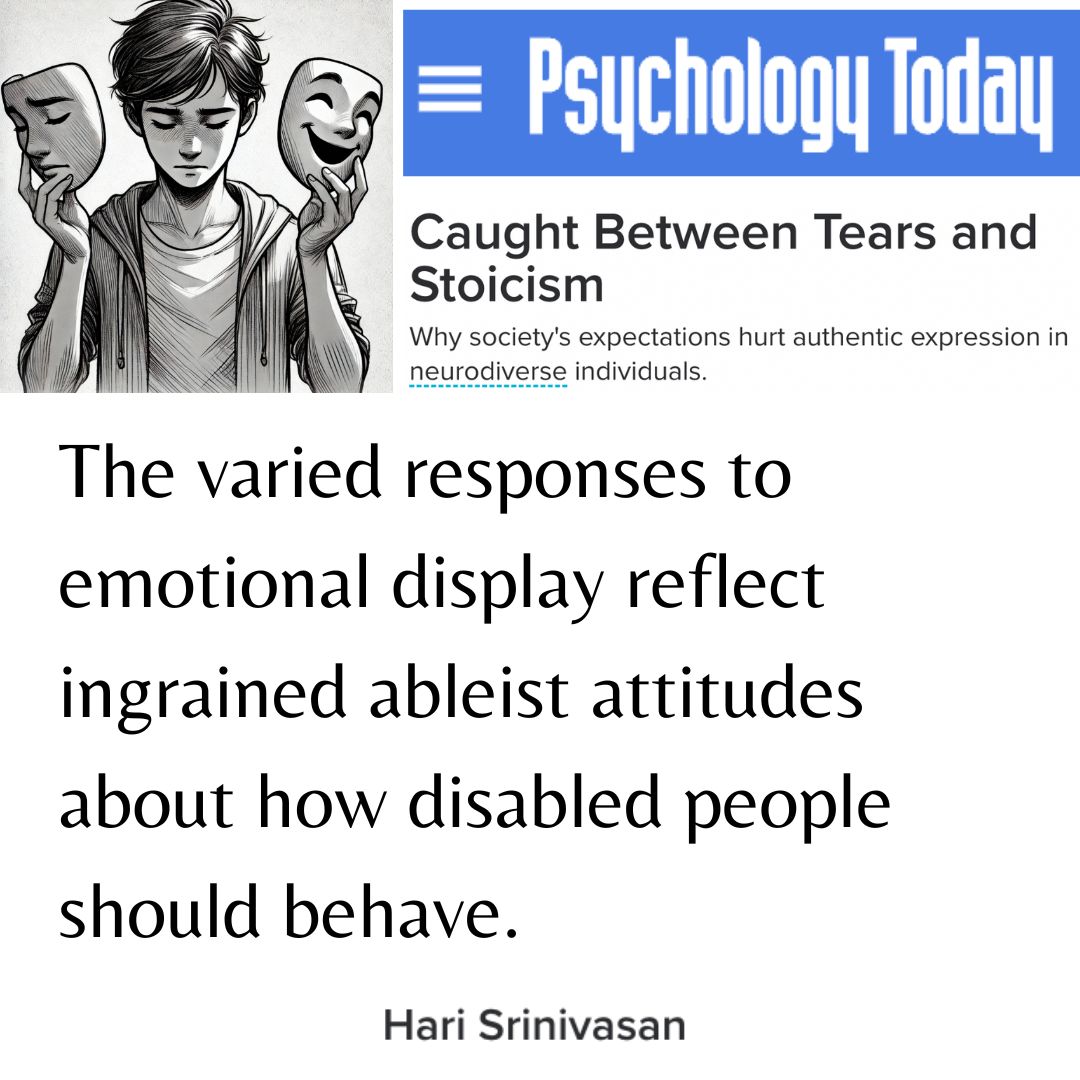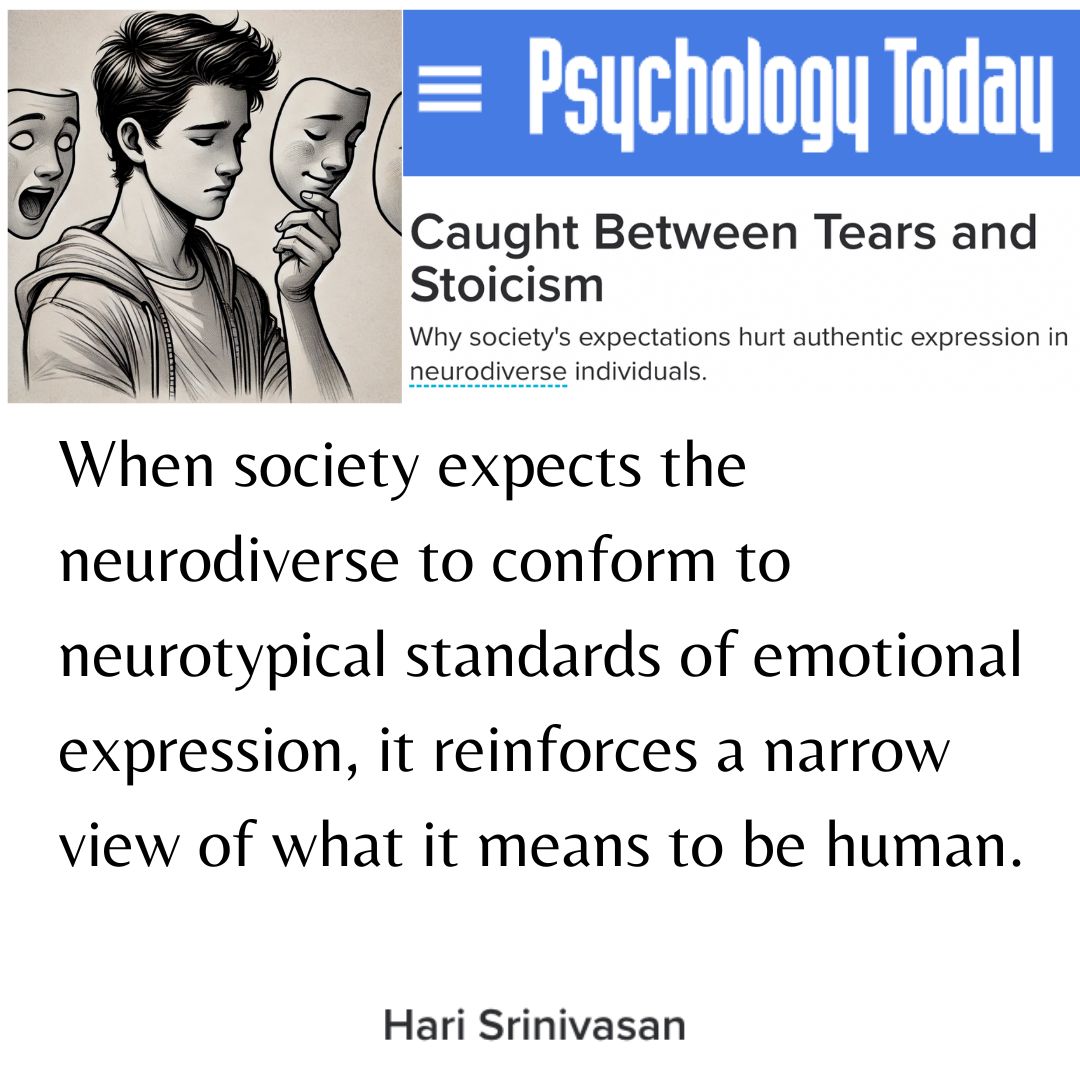Caught Between Tears and Stoicism
My research interests
Read here to learn more about me. My graduate research investigates peripersonal space (PPS) in autism, exploring how differences in sensory-motor integration impact spatial perception and interaction. PPS is the immediate space around our body—like a flexible, invisible bubble—where we perceive actions as directly affecting us. It serves as a critical sensorimotor interface, shaping how autistics navigate our social and spatial environments. Understanding PPS dynamics in autism has broad implications across education, employment, and daily living skills.
I employ behavioral, physiological, and neurological measures using immersive technology like VR, AR, and motion tracking to study these processes in a dynamic, real-world-like environment. My approach prioritizes ecological validity, simplicity, and participant comfort, so that a wide profile of autistics can participate in research — capturing a more comprehensive understanding of sensory-motor differences that span the spectrum of autism.
Ultimately, my work aims to bridge the gap between basic neuroscience and applied interventions, informing strategies that can help autistics navigate their sensory environments more effectively. I will also be looking to developing tailored intervention(s) based on PPS insights. As both a researcher and an autistic with ADHD, I am deeply committed to research that not only advances scientific understanding but also has practical real world applications and solutions.
- Short Video on PPS and my research: https://youtu.be/-cfAiB3odyM (~5 mins)
- Overview of my research poster below https://youtu.be/7B99aYdXDbc (~5 mins)
My Ted X talk titled "Pebbles in the Pond of Change
Hari Srinivasan, shares a powerful message about the power of small actions in creating ever-widening ripples in the pond of change. Drawing from personal experiences and the legacy of disability rights leaders, he redefines progress as a journey that starts with simple, accessible steps. His inspiring message encourages everyone to identify and act on their own "small pebbles" to drive societal transformation.
Perceived reduced networking and socialization
Read full article at https://fortune.com/2023/07/27/flexible-work-critics-using-same-arguments-were-used-oppose-disabled-ramps-closed-captioning-equity-access-never-optional-remote-work-careers-hari-srinivasan/
My other list of Publications: https://uniquelyhari.blogspot.com/p/published-work.html
How Reasonable are Reasonable Accommodations at Work
Intensified Mourning
When basic social inclusion is a non-starter, what kind of thriving and flourishing are we talking about.
"Positive psychology must also recognize the needs of the most marginalized in the autism community, such as those with high support needs who face significant communication, health, and behavioral challenges. Even basic social inclusion is a non-starter for a good chunk of such autistics. For instance, parents of neurotypical children might have concerns about their children around an autistic child who may be aggressive or have self-injurious behaviors. Another example is a young adult I know who is homebound, with a worker who comes once a week and sits outside the house so that the parent can run errands. Such autistics are excluded even from segregated adult day programs meant for autistics. So, what kind of thriving and flourishing of autistics are we talking about here?" - Hari Srinivasan
https://www.liebertpub.com/doi/10.1089/aut.2024.38246.pw
Caught Between Tears and Stoicism
Metaphorical Doorways
Read at https://www.dailycal.org/2018/03/15/first-transitions
My other list of Publications: https://uniquelyhari.blogspot.com/p/published-work.html
Social Marginalization
Read at: https://time.com/6551520/loneliness-autism-essay/
My Ted X talk titled "Pebbles in the Pond of Change
Hari Srinivasan, shares a powerful message about the power of small actions in creating ever-widening ripples in the pond of change. Drawing from personal experiences and the legacy of disability rights leaders, he redefines progress as a journey that starts with simple, accessible steps. His inspiring message encourages everyone to identify and act on their own "small pebbles" to drive societal transformation.











